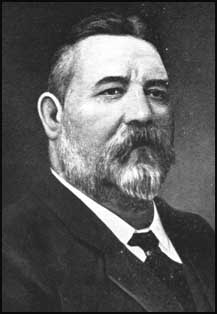
The National Union of Mineworkers (NUM) is a trade union for coal miners in Great Britain, formed in 1945 from the Miners' Federation of Great Britain (MFGB). The NUM took part in three national miners' strikes, in 1972, 1974 and 1984–85. After the 1984–85 strike and the subsequent closure of most of Britain's coal mines, it became a much smaller union. It had around 170,000 members when Arthur Scargill became leader in 1981, a figure which had fallen in 2015 to an active membership of around 100.

Arthur James Cook, known as A. J. Cook, was a British trade union leader who was General Secretary of the Miners’ Federation of Great Britain from 1924 until 1931, a period that included the 1926 General Strike.
The Miners' Federation of Great Britain (MFGB) was established after a meeting of local mining trade unions in Newport, Wales in 1888. The federation was formed to represent and co-ordinate the affairs of local and regional miners' unions in England, Scotland and Wales whose associations remained largely autonomous. At its peak, the federation represented nearly one million workers. It was reorganised into the National Union of Mineworkers in 1945.

William Brace was a Welsh trade unionist and Liberal and Labour politician.
The South Wales Socialist Society was a federation of communist groups in Wales, with many of its members being coal miners. It was a founder constituent of the Communist Party of Great Britain.
William Thomas Paynter was a Welsh miners' leader involved in the hunger marches of the 1930s.

William Abraham, universally known by his bardic name, Mabon, was a Welsh trade unionist and Liberal/Labour politician, and a member of parliament (MP) from 1885 to 1920. Although an MP for 35 years, it was as a trade unionist that Abraham is most well known. Initially a pioneer of trade unionism, who fought to enshrine the principle of workers' representation against the opposition of the coal-owners, he was regarded in later life as a moderate voice believing that disputes should be solved through conciliation rather than industrial action. This drew him into conflict with younger and more militant leaders from the 1890s onwards. However, although the defeat of the miners in the South Wales strike of 1898 was a clear defeat for Mabon's strategy, his prestige was sufficient to ensure that he became the first president of the South Wales Miners' Federation which was established in the wake of the dispute. Abraham was noted for his powerful speaking voice, and was a renowned orator in English and Welsh.
David James Williams was a British miner and checkweighman who became a Labour Party Member of Parliament (MP).

Thomas Richards was a Welsh trade unionist and politician.
George Henry Neilly was an Australian politician. He was a member of the New South Wales Parliament from 1954 to 1977. He was a member of the Labor Party (ALP).

Frank Hodges was an English trade union leader, who became General Secretary of the Miners' Federation of Great Britain. A Member of Parliament (MP) for one year, he was Civil Lord of the Admiralty in the first Labour Government.
William Ernest Wattison was an Australian politician and a member of the New South Wales Legislative Assembly from 1947 until 1968. He was a member of the Labor Party (ALP).

John Henry Cann was a New South Wales politician, Treasurer, and Minister of the Crown in the cabinets of James McGowen and William Holman.

The national coal strike of 1912 was the first national strike by coal miners in Britain. Its main goal was securing a minimum wage. After 37 days the government intervened and ended the strike by passing the Coal Mines Act, establishing a minimum wage for the first time.

Matthew Charlton was an Australian politician who served as leader of the Labor Party from 1922 to 1928. He led the party to defeat at the 1922 and 1925 federal elections.
The North Wales Miners' Association was a trade union representing coal miners in Wales.

The Somerset Miners' Association or Somersetshire Miners' Association was a coal mining trade union based in the Somerset coalfield, Somerset, England.
The Forest of Dean Miners' Association was a trade union for coal miners in the Forest of Dean area of England.
Edward Jones was a Welsh trade union leader.











